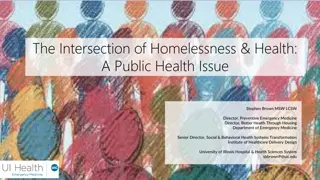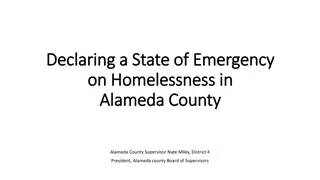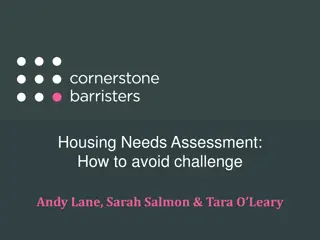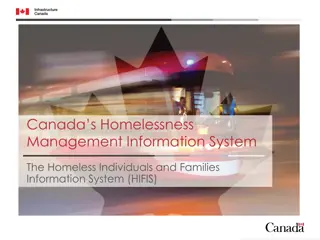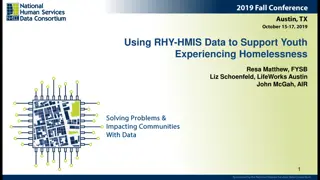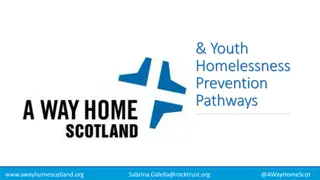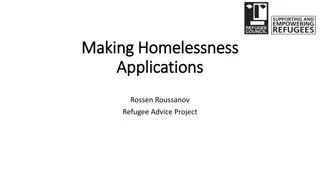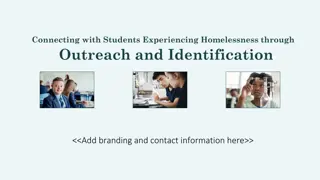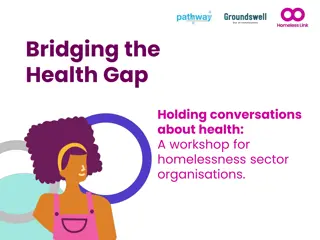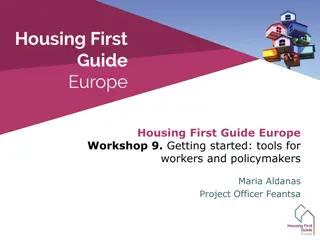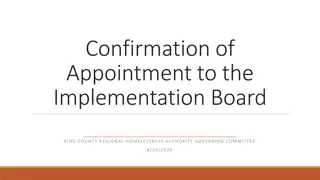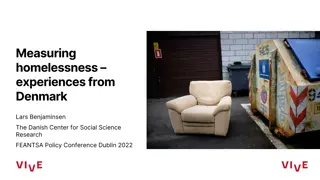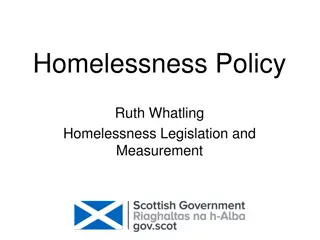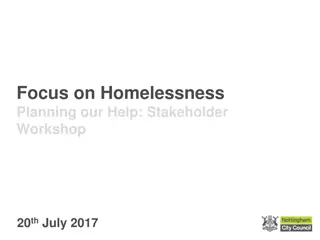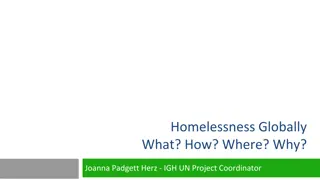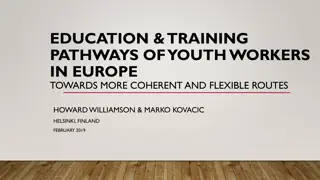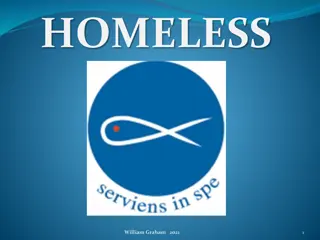Defining Youth Homelessness in Europe
This content explores the working definition of youth homelessness in Europe, focusing on the age range, distinctions from adult homelessness, diverse experiences, typology, and human rights standards. It delves into the process of reviewing definitions, survey findings, and the importance of considering cognitive, emotional, and psychological development in addressing youth homelessness.
Download Presentation

Please find below an Image/Link to download the presentation.
The content on the website is provided AS IS for your information and personal use only. It may not be sold, licensed, or shared on other websites without obtaining consent from the author.If you encounter any issues during the download, it is possible that the publisher has removed the file from their server.
You are allowed to download the files provided on this website for personal or commercial use, subject to the condition that they are used lawfully. All files are the property of their respective owners.
The content on the website is provided AS IS for your information and personal use only. It may not be sold, licensed, or shared on other websites without obtaining consent from the author.
E N D
Presentation Transcript
Youth Homelessness A Working Definition
A Working Definition of Youth Homelessness in Europe oAge range oDistinction from adult homelessness oDiversity of experience oTypology of homelessness oInternational & European human rights standards
Working Definition Youth homelessness occurs where an individual between the age of 13 and 26 is experiencing rooflessness or houselessness or is living in insecure or inadequate housing without a parent, family member or other legal guardian.
Process Review of youth homelessness definitions from other jurisdictions Online survey with service providers and experts across Europe Analysis of results and draft definition Feantsa Youth meeting to discuss and refine definition and guidance notes Also collating best practice examples
Survey Findings Reality v Legislation Perception of youth differs between and within countries and services No agreed definition of youth homelessness Common experiences and pathways for young peope
Age range Needed to be inclusive of different contexts Needed to consider cognitive, emotional and psychological development Different practices in different sectors: youth work, social welfare, housing
Distinction from adult homelessness Differences in pathways into homelessness Differences in experiences while homeless Differences in exit routes from homelessness
Distinction from adult homelessness Things to consider: Young people may have no experience of independence Transitioning to adulthood Social, cognitive, physical, psychological and emotional development Experience of social service failure/fear of authorities Discrimination in existing services/policies
Diversity of experience Age Young people leaving state care Black & minority ethnic LGBTQ+ Drug use Mental health Housing supply and discrimination Survival sex Family conflict and violence Household disruption and family instability Debt Precarious/low paid employment Wider social exclusion Young offenders Pregnant young women & young people with children in their care Roma youth Inaccessiblity of affordable housing
Sustaining exits from homelessness Building supportive networks School, education, training, work Family connections Access to social systems and support Psychological and mental health supports
European typology + Human rights Definition is in line the ETHOS typology Youth homelessness as a human rights violation - ICCPR, ICESCR, European Social Charter Youth rights, right now guide




